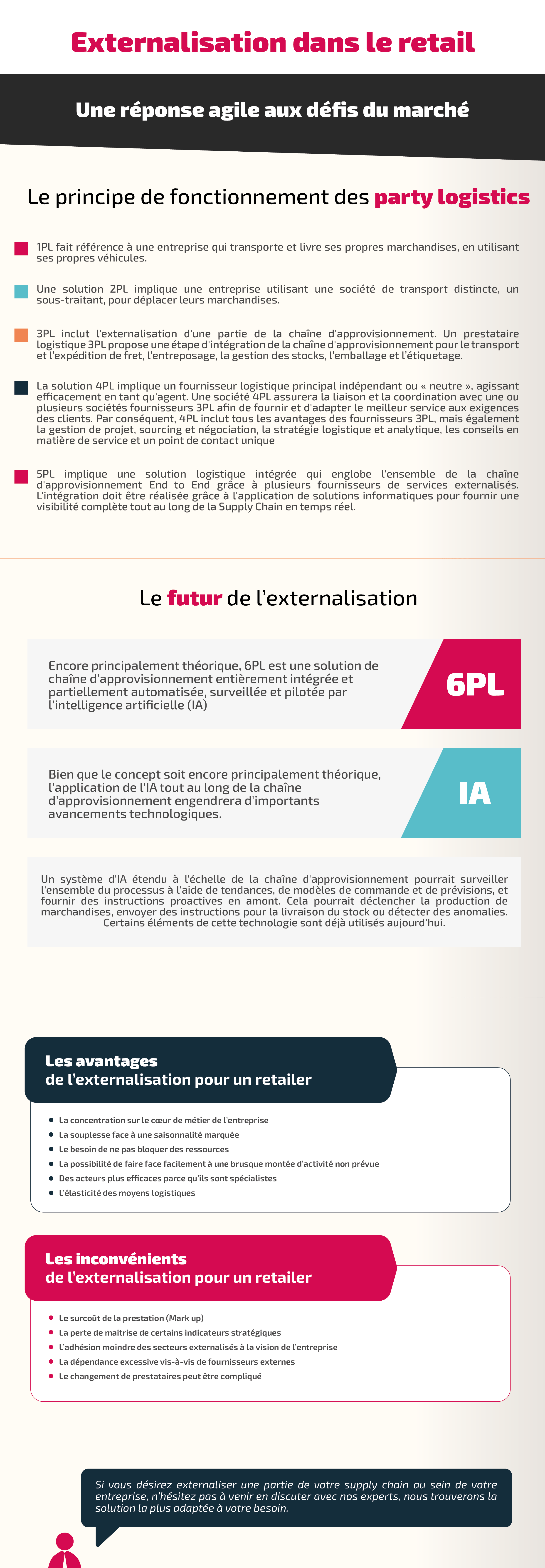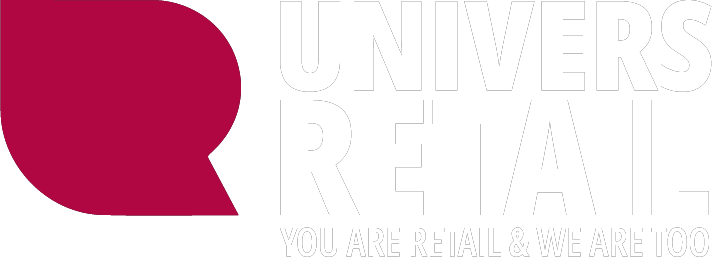In the competitive world of retail, companies are constantly looking for ways to optimize their operations while reducing costs. One increasingly popular solution is outsourcing.
- In the Supply Chain field, outsourcing is the practice of entrusting all or part of a company's activities to one or more service providers.
- Outsourcing implies a greater transfer of responsibility to the supplier than subcontracting.
- This can lead to a significant reduction in the company's presence in the areas concerned.
Depending on its activity, size, maturity or seasonality, a company may need to outsource its supply chain to a greater or lesser extent.
In 2024, outsourcing offers significant advantages for retailers, enabling them to concentrate on their core business. These strategic challenges contribute to strengthening their market position by meeting the ever-increasing needs and expectations of consumers.
What is outsourcing?
Outsourcing in the retail sector offers many advantages to companies. It allows the company to focus on its core strengths, such as supply chain management, marketing and sales, while leaving non-strategic activities to specialist experts.
The term "PL" stands for Party Logistics, which is commonly translated as Prestataire Logistique. In reality, the term 1PL implies that production and logistics are handled by a single entity (for example, a small company that manufactures custom-made furniture and delivers it to its customers in its own vehicle). Consequently, there is no external service provider involved, contrary to what the French translation implies.
Depending on the type and extent of outsourcing, we speak of 1PL, 2PL, 3PL, 4PL, 5PL. 6PL solutions, although still mainly theoretical, are beginning to be mentioned more and more often.

Our expert opinion:
The decision to outsource is closely linked to the logistics master plan, and has a strategic dimension in terms of supply chain. Whatever the scope of the service chosen (3PL, 4PL, etc.), the contract drawn up between the service provider and the company must be as precise as possible to avoid any misunderstandings or difficulties in its implementation. It is essential to clearly define the monitoring indicators and penalties applicable to both parties, bearing in mind that the company will be committing itself to the service provider for a specific volume and duration..
In conclusion, outsourcing in the retail sector offers many advantages to companies, including cost reduction, flexibility and the ability to focus on their core business, enabling them to innovate, differentiate themselves from their competitors and position themselves advantageously in the market.
However, outsourcing is not without risks. Retailers need to choose their service providers carefully, and build strong relationships based on trust and transparency. It's essential to ensure that suppliers have the expertise, resources and capabilities to meet the company's needs. Poor outsourcing can lead to delays, errors or quality degradation, which can damage brand reputation.
Opting for outsourcing requires personalized support in the strategic choices to be made, as well as in the choice of service providers.
If you would like to outsource part of your supply chain within your company, don't hesitate to discuss it with our experts, and we'll find the best solution for you.
Computer graphics by Simon Groulez and Dominique Blanchar

